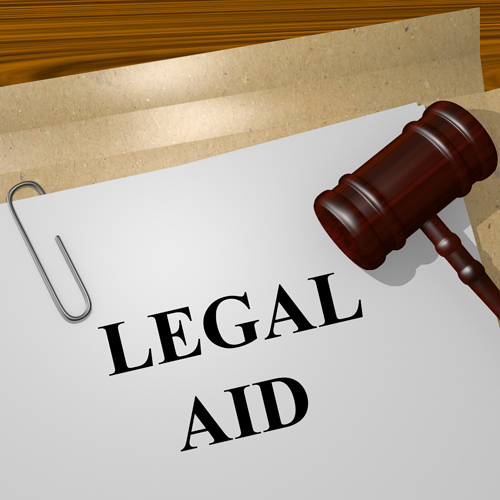Access to Justice
Budget proposal for ‘orderly closeout’ of Legal Services Corp. is ‘devastation,’ says legal aid leader

The Legal Services Corp. has requested $2.1 billion in funding for fiscal year 2026, a far cry from the administration’s $21 million request to enable an “orderly closeout” of the program, according to a Bloomberg Law story. (Image from Shutterstock)
The Legal Services Corp. has requested $2.1 billion in funding for fiscal year 2026, a far cry from the administration’s $21 million request to enable an “orderly closeout” of the program, according to a Bloomberg Law story.
The LSC funds 130 nonprofit legal aid programs that operate more than 800 offices across the country to provide civil legal help to millions of low-income people, according to the LSC website. Grantees offer help in matters that include family law, housing and disaster assistance.
Bloomberg Law spoke with April Frazier Camara, president of the National Legal Aid and Defenders Association, which seeks to educate Congress on the need for funding.
“What’s being proposed is devastation,” Camara said in an interview with Bloomberg Law.
LSC organizations help veterans secure benefits, help domestic violence survivors get protection orders, and help protect older adults from scams, according to a April 23 press release and op-eds here and here.
A bipartisan coalition of attorneys general from 40 states and territories has expressed support for the LSC in letters to key members of the U.S. Senate Appropriations Committee and the U.S. House of Representatives Appropriations Committee, according to press releases here, here and here.
“Congressional investment in the LSC is essential to ensure that our legal system works for all Americans, not just those who can readily afford lawyers,” the letters say.
The letters were signed by the attorneys general of Alaska, American Samoa, Arizona, California, Colorado, Connecticut, Delaware, District of Columbia, Georgia, Hawaii, Illinois, Louisiana, Maine, Maryland, Massachusetts, Michigan, Minnesota, Nevada, New Hampshire, New Jersey, New Mexico, New York, North Carolina, North Dakota, Northern Mariana Islands, Ohio, Oklahoma, Oregon, Pennsylvania, Rhode Island, South Dakota, Tennessee, U.S. Virgin Islands, Utah, Vermont, Virginia, Washington, West Virginia, Wisconsin and Wyoming.
See also:
Civil legal aid shrinks the justice gap and makes the court system more equitable
Civil legal aid lawyers are often the last line of defense. Why are there so few of them?
Write a letter to the editor, share a story tip or update, or report an error.

